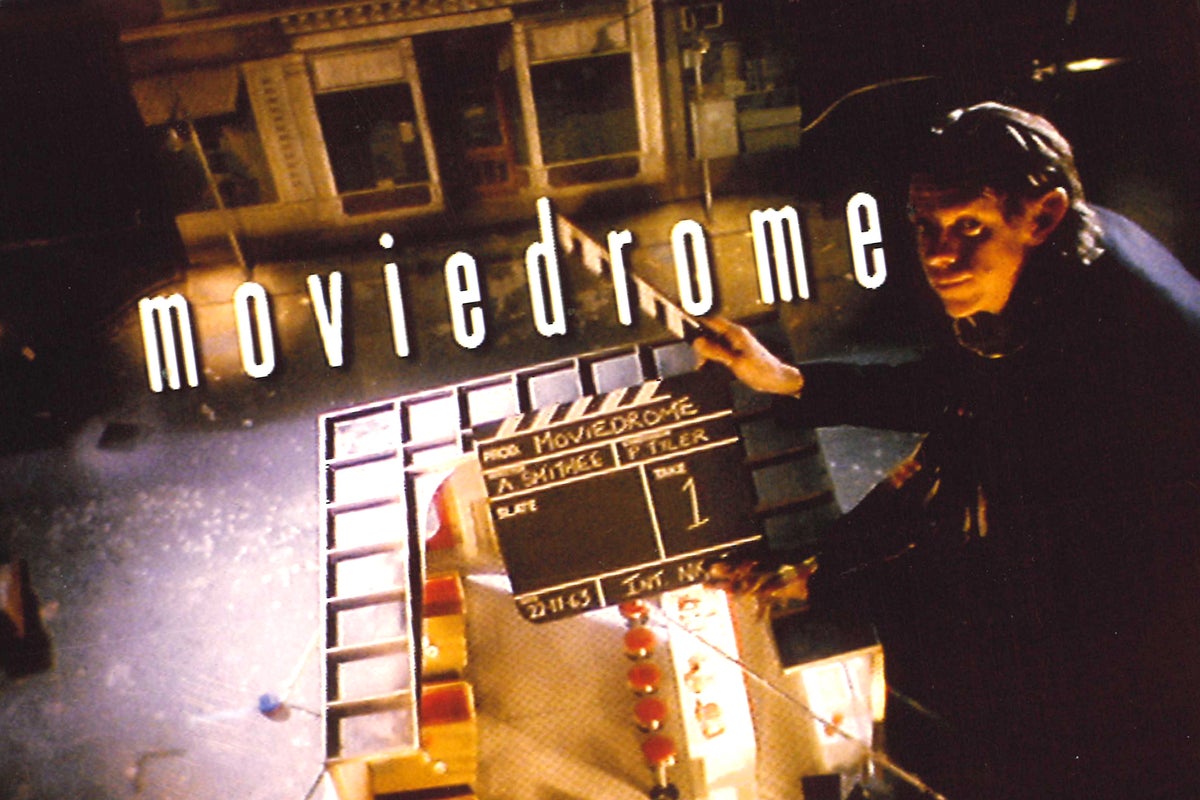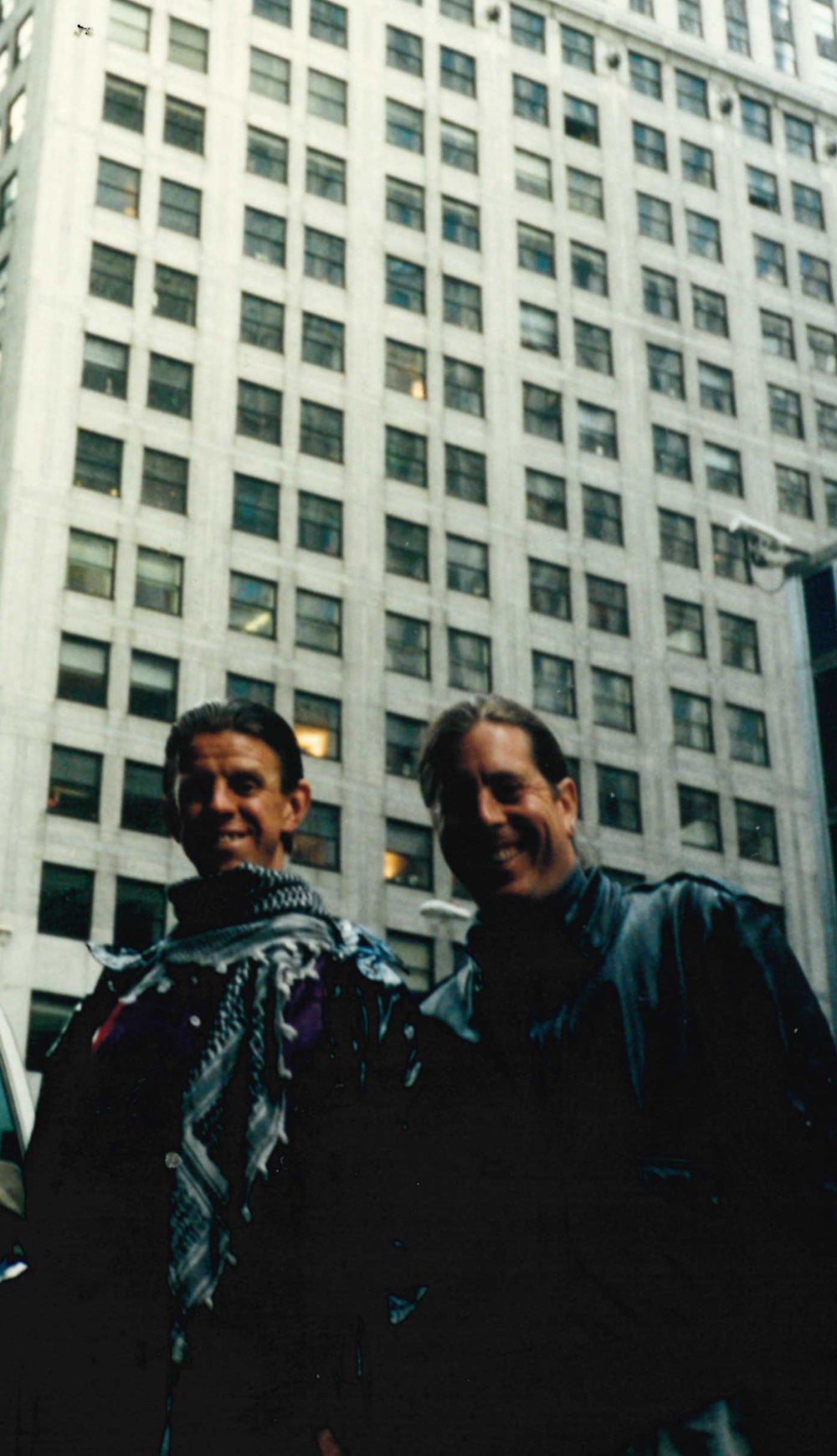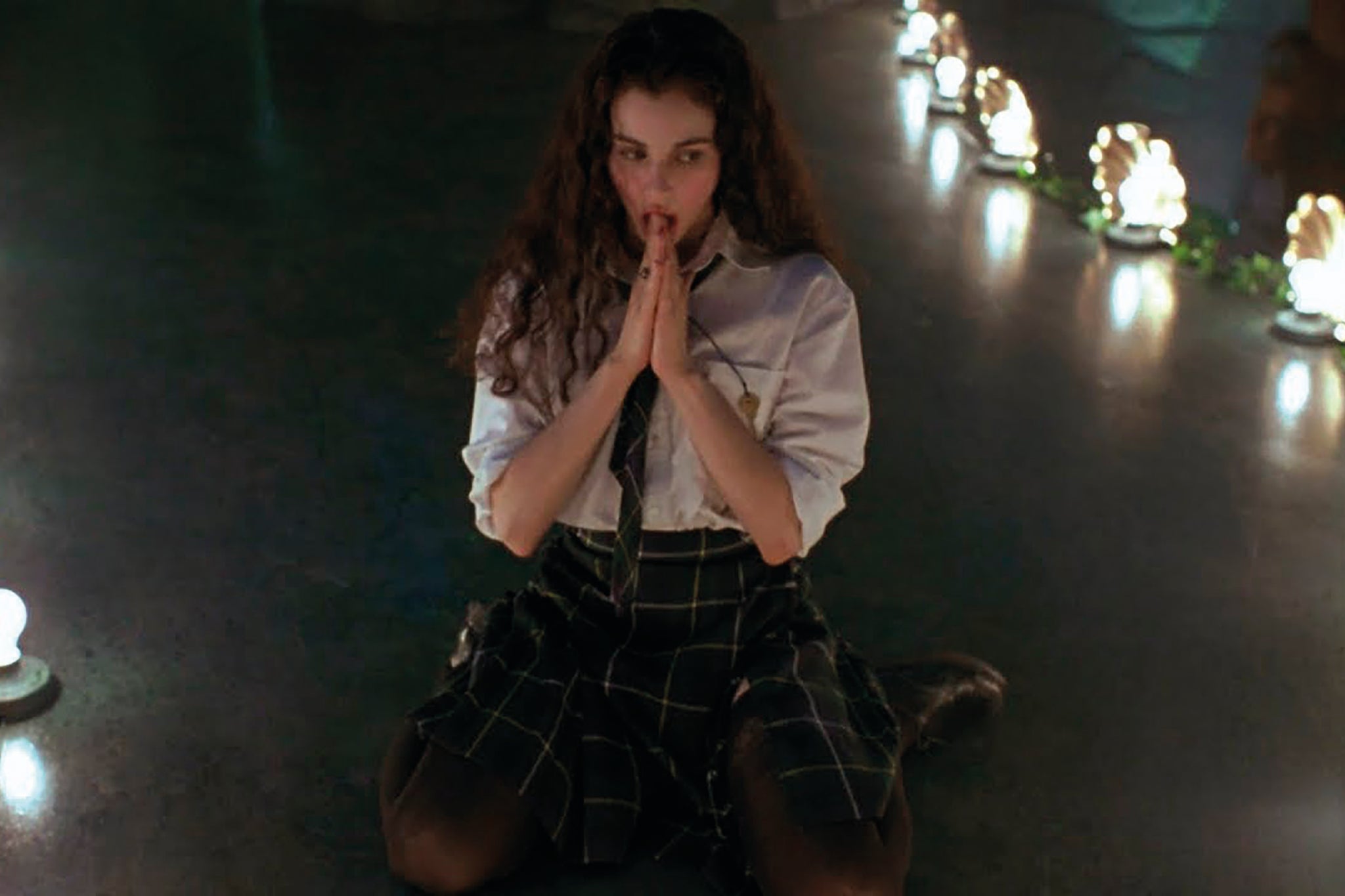
The existential dread of Sunday night has always been a mindkiller, but it used to be much, much worse. Long before we could safely vegetate before endless hours of Skibidi Toilet or doom-scroll ourselves to sleep with smartphones crab-clawed to our chests, there were the bad old days of linear television: four terrestrial channels and the kind of Sunday evening programmings whose theme tunes – Last of the Summer Wine, Songs of Praise, Antiques Roadshow – can still induce involuntary gag reflexes even decades later.
For those of a certain age and disposition, the dying days of the 20th century did, however, offer a weird, wonderful escape hatch: Moviedrome. Running from 1988 to 2000, the show offered a carefully curated deep dive into “cult” film, memorably presented by Alex Cox (1988-1994), director of movies including Repo Man and Sid and Nancy, and the filmmaker and documentarian Mark Cousins (1997-2000). It lifted the lid on everything from outrageous horror and sci-fi tales to film noir masterpieces and psychedelic Westerns. With Moviedrome, it was possible to tune into Jean-Luc Godard’s stylish Alphaville one week and be assailed by a film about a giant pig running amok in the Australian outback the next. Now, a special two-month season at London’s BFI explores the series in all its glory, covering once-reviled classics like Scarface, Get Carter and The Wicker Man to lesser-knowns like The Great Silence and California Dolls.
“The beauty of Moviedrome was that with ‘cult’ being the definition you could range far and wide over high art, low art, obscure foreign language films… anything from the Forties to the Nineties,” says Nick Freand Jones, the show’s mastermind and producer. He’d started his BBC career with Radio Times magazine before moving into acquisitions: the department that oversaw the buying-in of anything the Beeb didn’t produce itself. Hollywood blockbusters would be bought as part of library deals, meaning for every big-budget crowd-pleaser they acquired, there’d be a job lot of other, lesser-known titles – and plenty of oddities to intrigue a cult-leaning cineaste like Freand Jones. He’d been steered toward production by a friendly department head, notching up credits on a tribute to The Phil Silvers Show, an homage to legendary Brit horror studio Hammer, and a series called The Film Club, which featured noteworthy sorts like Stephen Frears, Ken Russell and John Boorman introducing films about which they were passionate.
“The brilliant thing about having that BBC library at your disposal was that it was vast,” says Freand Jones. “It was an incredible privilege, really, to be able to stick your hand into that box of chocolates. There were a series of conversations across the department about what we could do with all these films and how we could brand and curate it – to take the Film Club idea and run with it. I always had in mind the sort of cinemas that were influential to me when I moved to London – places like the Scala and the Rio in Dalston – that were doing late-night double bills of cult or foreign language movies. The idea was to infuse a movie series with that kind of aesthetic.”
As for who would present such a beast, Freand Jones had the perfect co-conspirator in mind: Merseyside-born Cox, a director whose own films had made significant waves, and who’d already put in a star turn on The Film Club introducing Point Blank and The Long Goodbye. “He was British, but he’d made it on the other side of the Atlantic and was a real film buff,” recalls Freand Jones. “He had a fearsome brain, slightly cracked, but fearsome, and started out studying law but ended up making movies – I could well see him as a barrister, eviscerating some poor lawyer across the courtroom. He had a natural ability in front of the camera, he looked punky and cool, but he also knew his film history, had very strong views, and seemed like the right fit.”
Cox, for his part, has a slightly wryer take. “The Film Club had filmed intros with very notable British directors, who all gave excellent analyses,” he says. “But the interviews were conducted in the directors’ homes, and so tended to feature the same fireplace or sideboard in the background. I didn’t live in London, and when asked where the crew should go I suggested the Lloyds Building – which was then a highly controversial piece of architecture. So my two intros featured these massive Things to Come interiors. They were most impressive and memorable, and I think they got me the gig.”
We wanted ‘Moviedrome’ to be a bit like the conversation you have in the pub with your mates. It could be intelligent, but it didn’t have to be off-putting
The show followed a basic set of rules: Freand Jones would select the films, while Cox had free reign to say what he would about them. “What made Moviedrome unique was that the frontman didn’t have to be the pitch man,” says Cox. “One didn’t have to pretend that everything about a film was great. I could say, of Diva for example, ‘this film isn’t very good but there’s one scene with spectacular art direction, worthy of your attention.’ I think that was something people liked about the series.”
The series launched in 1988 with a rare, extended version of The Wicker Man. “David Thompson, a guy I’d worked with on The Film Club, had unearthed the slightly restored version that we ended up showing – I think he tracked it down to Roger Corman’s office in America. There were various legends about the different cuts – I think in Alex’s intro he talks about some of it being buried under the M4 – and it sort of defined what we were trying to say.”
The combination of Freand Jones’ curation and Cox’s irreverent yet piercingly insightful introductions proved winning, and was augmented by a lovingly DIY aesthetic crafted by talented BBC designers like Geoff Powell and Bob Cummins that riffed on classics like The Third Man as well as Cox’s own motel-dwelling existence. “For one of the intros, Bob had to get on a plane to the States and took the top of the Empire State Building as hand luggage,” says Freand Jones. “He was stopped by the customs guys who asked, ‘So what’s in the bag? King Kong?’ And, of course, he opened his bag and pulled out this hairy gorilla head which they made him put on…”

For all the knowledge and intelligence behind the series, however, every episode was eminently approachable. “We wanted Moviedrome to be a bit like the conversation you have in the pub with your mates. It could be intelligent, but it didn’t have to be off-putting. Alex had a great knack, even with films he didn’t particularly like, of allowing you to watch them without feeling wrong.”
After seven years and offering his thoughts on 141 films, Cox’s Moviedrome tenure came to a close. “I think he was becoming better known as a host than he was as a director, and he wasn’t comfortable with that,” suggests Freand Jones. “He wanted to focus more on his filmmaking.” While the parting was amicable, the prospect of filling Cox’s shoes was daunting. “Finding a filmmaker with a kind of cult reputation or an interest in cult movies who might have the right tone was difficult,” admits Freand Jones. “I remember Peter Jackson’s name coming up at one point – this was pre-Lord of the Rings, obviously.”
The role ultimately fell to Northern Irish filmmaker Mark Cousins, who Freand Jones had encountered while Cousins was heading up the Edinburgh Film Festival. “As soon as you met Mark you could tell how passionate he was about cinema – it jumped out at you. And he wasn’t like Alex, which was important because we didn’t want to have someone who was just a pale imitation. Mark could range far and wide across cinema. He definitely had that vital taste, where there was no separation between high and low art, popular and niche – it was all possible. I think Mark took Moviedrome somewhere really interesting and new.”
Freand Jones left the BBC after two seasons working with Cousins, joining the nascent Film4 and working on projects like the Mark Kermode-fronted Extreme Cinema strand. While Moviedrome’s spirit lived on with the likes of Extreme Cinema, the proliferation of 24/7 programming and a hyperabundance of new channels effectively presaged the endless, mindless choice of the streaming era. It also highlighted what had made Moviedrome so vital: not just the films being shown, but the thoughtful curation and ability to join dots between directors, genres and schools of thought that you might never have otherwise considered.
“As soon as the movie channels flourished, people were super-served with material but without choice,” says Freand Jones. “It’s the same with the algorithms that Netflix or whoever operates… Occasionally they’re on the money and suggest something interesting, but a lot of the time, my reaction is, well, ‘F*** off, I don’t want a robot telling me what I like.’”

Today, Freand Jones, Cox and Cousins continue to follow the winding, shadowy pathways that made Moviedrome such a distinct and individual proposition. Cousins remains a prolific filmmaker, feted for projects such as The Story of Film: An Odyssey and dragging, alongside Tilda Swinton, a mobile cinema through the Scottish Highlands. Cox has maintained his maverick status into his seventies, with his next film – a crowdfunded, Western adaptation of Nikolai Gogol’s Dead Souls – wryly titled My Last Movie. Freand Jones, meanwhile, co-runs The Acton Film Club and continues to work as a producer, working behind the scenes on projects like Radio 4’s Screenshot, co-presented by Ellen E Jones and Mark Kermode.
And as for Moviedrome? The weird, wonderful spirit of the films it spotlighted can be detected in the skewed work of directors including Alice Lowe, Ben Wheatley and Edgar Wright, and fans new and old continue to pore over the show’s lyrical introductions on YouTube: grainy, degraded and glitch-prone, like bootleg VHS recordings that have been dubbed and re-dubbed several times too many. Moviedrome is dead, long live Moviedrome!
‘Moviedrome: Bringing the Cult TV Series to the Big Screen’ is at BFI Southbank until 31 August; a collection of ‘Moviedrome’ films, including a new short documentary about the series, will also be available to stream on BFI Player







